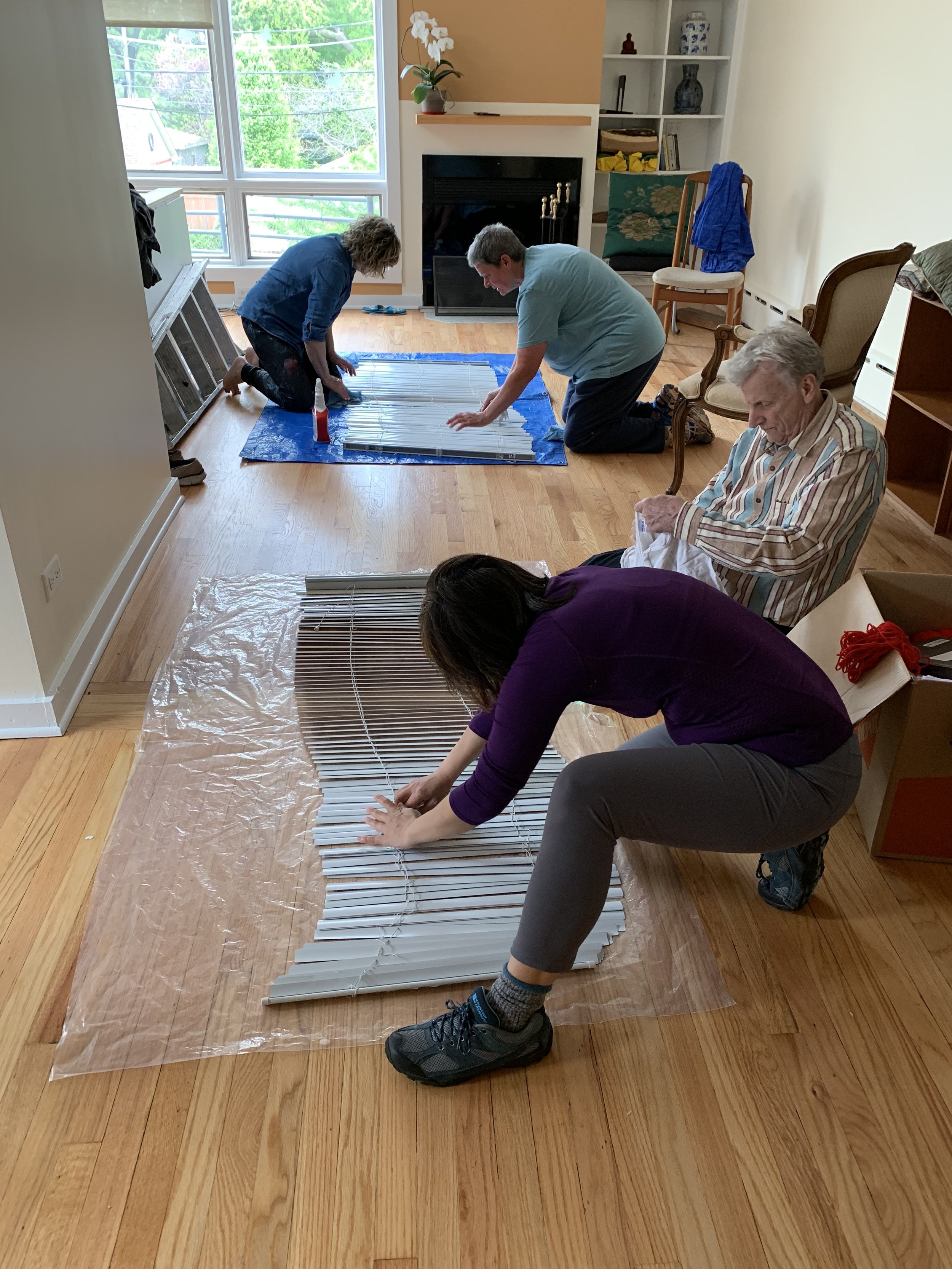Samu – the Heart of Zen
I would like to talk about samu and why it is an integral and important aspect of Zen training and practice. Samu means “work practice”. If you have been to a retreat at our Center, you will be familiar with samu. But we rarely do it outside of the context of retreats, so I am going to be introducing it to our community as an important part of our Zen training.
When we do samu we practice being one with whatever we are doing. In other words, the distance between subject and object shrinks until there is no separation. This intimacy is at the heart of Zen. We call it “giving life to our life”. So when you do samu, not only are you supporting the home temple or Zen Center, but you are supporting your own life as well. When we take time out of our busy lives to do samu or to listen to someone else, we are giving of ourselves in a way that activates and fulfills our bodhisattva vows. Dana giving is not only done through donations of money, but also by donations of our energy and time to support each other.
Still, some don’t understand why we don’t just hire gardeners or cleaners to do this work for us. So let me tell you a story about strawberries.
My favorite shirt was given to me by Julie Chisho Kase, and it displays some strawberries with a bee buzzing above them. I love this shirt because it reminds me of the generosity of nature and how I am a part of this gift which brings so much heart into my life and my relationships. In the American Indian tradition, the strawberry is a symbol of generosity because it gives of itself freely without asking for anything in return. So I guess we could say, it is the ultimate bodhisattva.
In “Braiding Sweetgrass” Robin Kimmerer tells of growing up in upstate New York and how she would spend summers picking wild strawberries. They were the smell of June. In one of their Creation stories, the origin of strawberries are told. Skywoman’s beautiful daughter was loved by all beings and died tragically when giving birth to her twins. After she was buried, a strawberry grew out of her heart. So among the Potawatomi, the strawberry is known as “ode min” or the heart berry.
The wild strawberry was valued among Indigenous peoples because it gave freely of itself. You received this gift through no action on your part. It was not a reward you earned or deserved. As an adult Robin Kimmerer says, “Even now . . . finding a patch of wild strawberries still touches me with a sensation of surprise, a feeling of unworthiness and gratitude for the generosity and kindness that comes with an unexpected gift all wrapped in red and green.”
Because we live in a consumer culture, the importance of this gift may be lost on us. A gift establishes a relationship, a bond and a sense of reciprocity. Whereas, when you purchase a commodity, the relationship ends as soon as the cashier hands you the receipt.
Samu is like a wild strawberry because it is given freely and, like a gift, it establishes a relationship between yourself and others in the community who are working alongside you. It feels good to work together. And it feels good to give generously of our time and energy in this way. It brings heart into our relationships and into our sangha community.
The Zen Life & Meditation Center, Chicago is our spiritual home. It belongs to all of us. If we are to maintain this place for future generations, it is up to each of us to grow strong bonds of kindship together so that we may be an oasis in the storms of life and a source of support and resilience for all who enter here.
I hope you will join me as we begin doing samu work practice together and find the joy that comes from fulfilling your bodhisattva vows together.
bows,
Roshi Robert Joshin Althouse
Abbot, Zen Life & Meditation Center, Chicago


